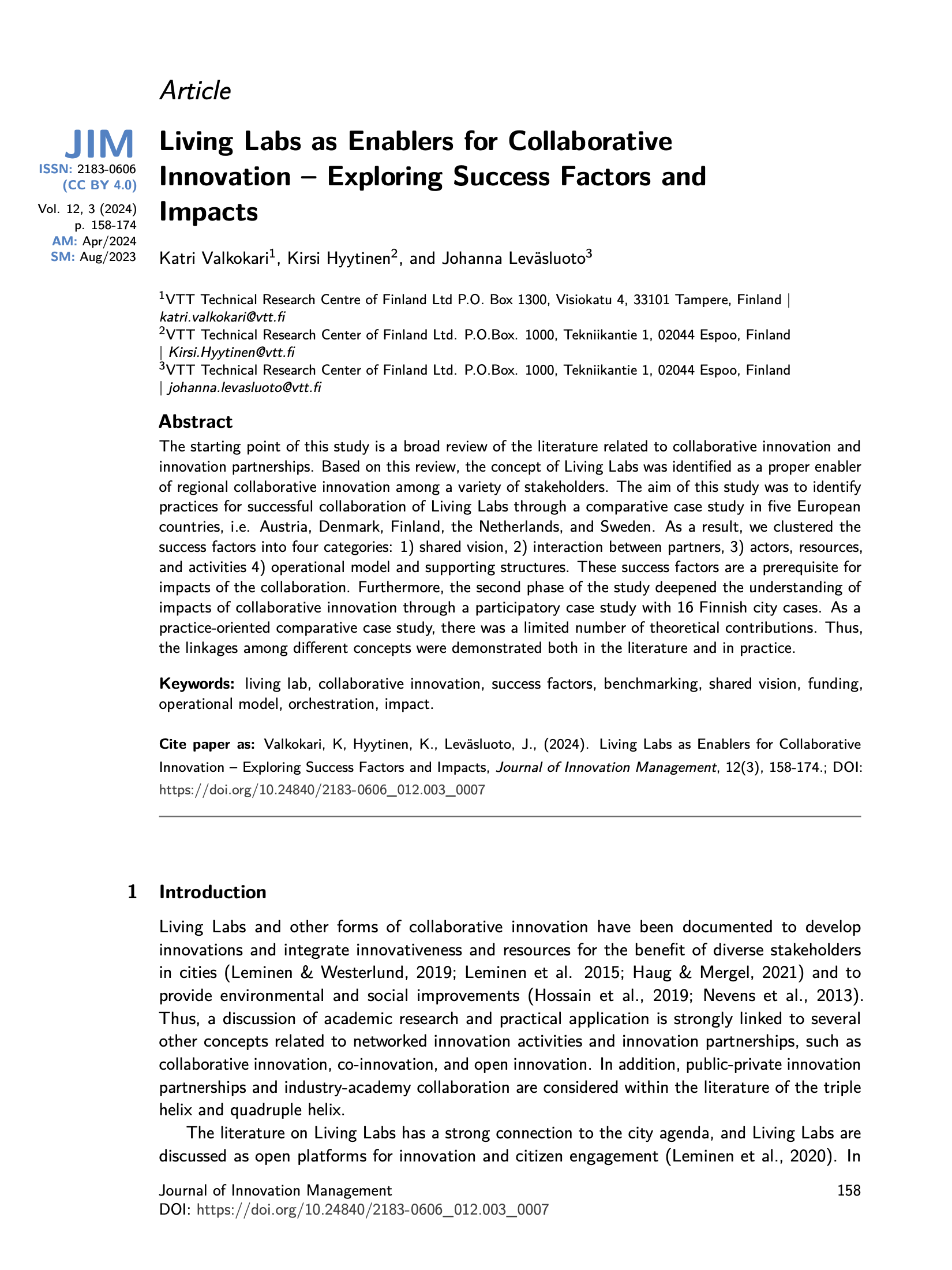Living Labs as Enablers for Collaborative Innovation – Exploring Success Factors and Impacts [Special Issue on Living Labs and Collaborative Innovation]
Main Article Content
Abstract
The starting point of this study is a broad review of the literature related to collaborative innovation and innovation partnerships. Based on this review, the concept of Living Labs was identified as a proper enabler of regional collaborative innovation among a variety of stakeholders. The aim of this study was to identify practices for successful collaboration of Living Labs through a comparative case study in five European countries, i.e. Austria, Denmark, Finland, the Netherlands, and Sweden. As a result, we clustered the success factors into four categories: 1) shared vision, 2) interaction between partners, 3) actors, resources, and activities 4) operational model and supporting structures. These success factors are a prerequisite for impacts of the collaboration. Furthermore, the second phase of the study deepened the understanding of impacts of collaborative innovation through a participatory case study with 16 Finnish city cases. As a practice-oriented comparative case study, there was a limited number of theoretical contributions. Thus, the linkages among different concepts were demonstrated both in the literature and in practice.
Article Details
Authors who publish with this journal agree to the following terms:
- Authors retain copyright and grant the journal right of first publication with the work simultaneously licensed under a Creative Commons Attribution License that allows others to share the work with an acknowledgement of the work's authorship and initial publication in this journal.
- Authors are able to enter into separate, additional contractual arrangements for the non-exclusive distribution of the journal's published version of the work (e.g., post it to an institutional repository or publish it in a book), with an acknowledgement of its initial publication in this journal.
- Authors are permitted and encouraged to post their work online (e.g., in institutional repositories or on their website) prior to and during the submission process, as it can lead to productive exchanges, as well as earlier and greater citation of published work (See The Effect of Open Access).

